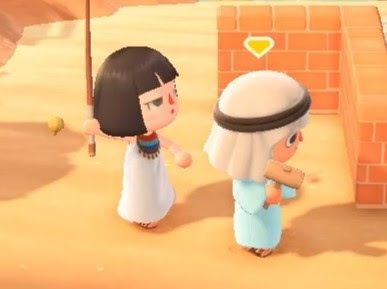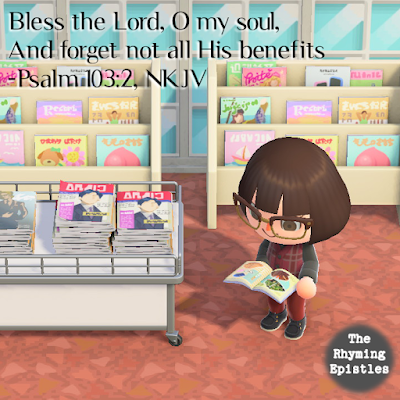Strangers Here: Slavery’s Imagery (Exodus 1:11-22)
“We’re all strangers here, so it’s alright if you can’t stop the tears…” – Tenth Avenue North 😫
Dear oppressed outsider,
We live in a world where each one of us is a target. We walk in a war where we’re tempted. We stumble. We fear. We fret. We risk leaping when our faith is tested. We long for the city that’s pain-free. Do you want to come there with me?
I’m talking about heaven, the home of Jesus’ followers. Before we get there, we have this journey called life. Yes, it’s full of strife, but it’s still beautiful because God’s love makes it meaningful. It’s a story whose author and protagonist is God, whose villain is Satan, and whose soundtrack is salvation.
What I’m going to discuss is what we’re being saved from, sin. The beginning of the Book of Exodus was wisely planned by God to illustrate how He brings out people from slavery. “In the Bible, slavery is a picture of sin. The bitter life of oppression [in Exodus] is exactly what we get under the cruelty of greed, lust, hatred, addiction, and every other idolatry (Langham & Ferguson).” We are now in the part of the Bible where Joseph’s generation have passed away.
Let’s see the how Israelites were treated under a new Pharaoh who didn’t know Joseph.
Exodus 1:11-22 (NASB)
11 So they
appointed taskmasters over them to oppress them with hard labor. And they built
for Pharaoh storage cities, Pithom and Raamses. 12 But the more they
oppressed them, the more they multiplied and the more they spread out, so that
they dreaded the sons of Israel. 13 The Egyptians used violence to
compel the sons of Israel to labor; 14 and they made their lives
bitter with hard labor in mortar and bricks and at all kinds of labor in the
field, all their labors which they violently had them perform as slaves.
15 Then the king of Egypt spoke to the Hebrew midwives, one of whom was named Shiphrah, and the other was named Puah; 16 and he said, “When you are helping the Hebrew women to give birth and see them upon the birthstool, if it is a son, then you shall put him to death; but if it is a daughter, then she shall live.” 17 But the midwives feared God, and did not do as the king of Egypt had commanded them, but let the boys live. 18 So the king of Egypt called for the midwives and said to them, “Why have you done this thing, and let the boys live?” 19 The midwives said to Pharaoh, “Because the Hebrew women are not like the Egyptian women; for they are vigorous and give birth before the midwife can get to them.” 20 So God was good to the midwives, and the people multiplied, and became very mighty. 21 And because the midwives feared God, He established households for them. 22 Then Pharaoh commanded all his people, saying, “Every son who is born, you are to throw into the Nile, but every daughter, you are to keep alive.”
If you read the verses before this, you’ll find that the “they” in verse 11 are Pharaoh’s people, the Egyptians, and you’ll also find the reason for the oppression, which is the threat of the large number of Israelites that might fight them in the event of war.
I’d like to explore the comparison of sin and slavery. In verse 11, God’s people were oppressed with hard labor. There’s nothing wrong with working diligently, but making your career an idol is sin. Pastor John Piper (2019) said that this happens when your work is “the root and not the fruit of your acceptance, your status, your riches, your identity, which are all free in Christ.” What he means here is you work hard to get the status or riches you desperately desire. It’s the total opposite of the fruit of works we do when we come to Jesus. We serve Christ because we found our treasure in Him, not because we want to earn the status as co-heirs with Him. If you think your works give you admission to heaven, you’re making yourself your own savior, and you’re just going to fail because you’ll sin no matter how hard you try not to.
 |
| an Egyptian whipping an Israelite to work (created in Animal Crossing: New Horizons) |
In verse 14, the Israelites’ lives were made bitter with labor forced on them violently. Have you ever been so hurt by a person that you harbor bitterness in your heart? Or do you hate someone so badly that you become bitter when he gets the achievement you don’t think he deserves? Bear in mind that hating your fellow human makes you a murderer (1 John 3:15), so beware of the evil aftertaste of being bitter.
Verse 17 illustrates how we win against temptation. Pharaoh commanded the Hebrew midwives to kill the newborn sons, but their fear of God led them to disobey the order. When Satan lures you to sin, let the fear of God win. When you choose to follow Him, everything will go well with you: You’re governed with love, you’ll love others, and you have a clear conscience. It doesn’t mean it’s all sunshine and rainbows but that we have eyes that see the even just the slightest sunshine in the rain because Jesus is with us. In verse 21, God rewards the midwives with households. In the same way, when we follow Jesus, we turn away from iniquity, and He rewards us a life of eternity. We’re also given a home, the best one there is because it’s our everlasting residence in heaven.
Now because the Hebrew women didn’t follow Pharaoh, he told his people to throw the Hebrew baby boys into the Nile River. That’s just how the devil works. He does all he can to ruin you. Thank God for giving us a way out! Exodus comes from the Greek word Exodos, which means "the road out" (Merriam-Webster). In this book, God delivers his people from slavery. It is a foreshadowing of Jesus saving us from sin.
Oh Lord, I praise You for You are the Way! You have come to save the day. In You, we are no longer suffering slaves to sin. In Your mercy, You permanently delete each wrong from memory's recycle bin. Hallelujah!
With love,
Celina <3
References
Langham, K., & Ferguson, J. (n.d.). Exodus 1 |
Oppressed. Exodus | The Rescue. Westminster, United States of America:
Through the Word.
Merriam-Webster. (n.d.). Exodus. Retrieved
from Merriam-Webster.com: https://www.merriam-webster.com/dictionary/exodus
Piper, J. (2019, November 4). When Has My Career
Become My Idol? Retrieved from desiringGod.org:
https://www.desiringgod.org/interviews/when-has-my-career-become-my-idol
Next: Too Good To Not Believe: God Works Wonders (Exodus 8:6-19)
Previous: The Lord Takes Such Good Care of Me: God Loves Us All Equally (Genesis 48:13-19)


Comments
Post a Comment